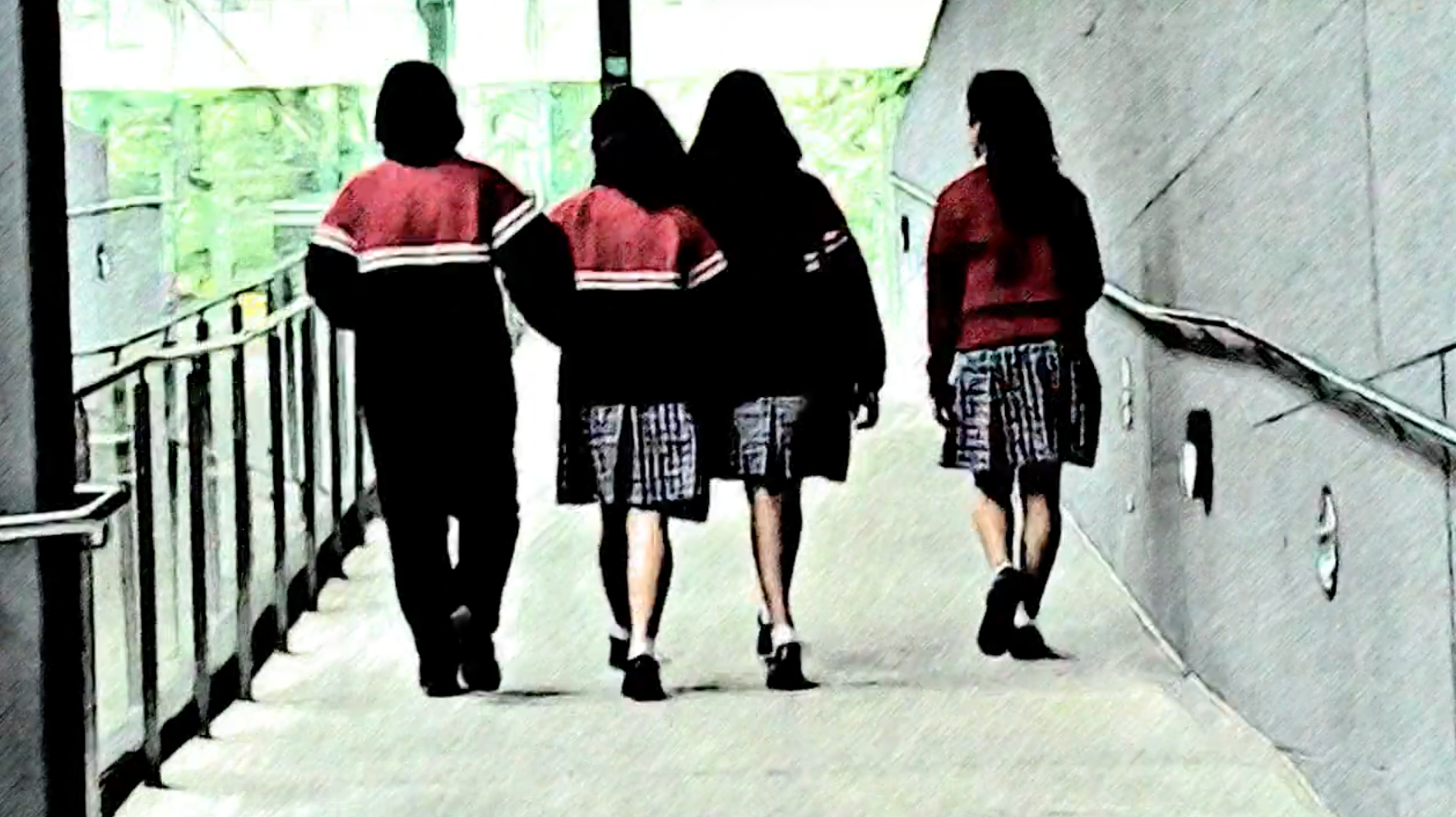Search results
Projects
Creative Citizenship
New ways to connect young people to the world

Creative Citizenship, in partnership with local cultural organisations, is encouraging youth to learn in inspiring environments.
The project explores:
— learning outside of the classroom;
— social inclusion through youth-generated teaching and learning materials; and
— improving digital literacies and social capital of young people through the creative exchange.
Visit the Creative Citizenship website.
If you would like to get involved with this project, fill out the form below or reach out to project leaders via the contact info provided alongside each bio.
People
Anne Harris
Associate Professor and Principal Research Fellow, Design and Social Context
School: Education
+61 3 9925 4459
RMIT staff profile
anne.harris@rmit.edu.au
Dr Anne M. Harris, PhD is an Associate Professor and Vice Chancellor’s Principal Research Fellow at RMIT University, and an Australian Research Council Future Fellow (2017 – 2021) studying intercultural creativity. Anne is an Honorary Research Fellow at University of Nottingham (UK) and an Adjunct Professor at Monash University (Australia).
Their research is in the areas of gender, creativity, diversity, performance and emerging digital ethnographies. Anne is a native New Yorker and has worked professionally as a playwright, teaching artist and journalist in the USA and Australia. They have authored or co-authored over 60 articles and 13 books on creativity, arts, and non-dominant culture formations, the latest being Queering Families/Schooling Publics: Keywords (with Stacy Holman Jones, Sandra Faulkner, and Eloise Brook, Routledge 2017). Anne is the creator and series editor of the Palgrave book series Creativity, Education and the Arts, and recently completed an Australian Research Council DECRA on the commodification of creativity.
DCP HDR Working Group on Wellbeing and Belonging
Understanding HDR Wellbeing in and post COVID-19

Over the past few years, studies internationally have identified the power of the arts to improve wellbeing and health. At RMIT, we specialise at arts-based, codesign and ethnographic approaches to address social, ecological and health challenges. The DCP HDR Working Group on Wellbeing and Belonging are developing short term and long term projects around understanding HDR wellbeing and developing human-centred approaches to digital innovation. It seeks to address issues around the 2020 crisis (bushfires, climate change and COVID-19) and how we can empower HDRs for sustaining futures.
Within the working group, there is expertise in terms of ethnographic, user-experience methods, co-design frameworks, digital media curriculum and evaluation. This working group is researching the role of social and digital innovation for addressing impact of social isolation and associated emotional distress on wellbeing of HDR students during the COVID-19 crisis. The findings of this study will be deployed for future strategies for HDR students wellbeing.
If you would like to get involved with this project, fill out the form below or reach out to project leaders via the contact info provided alongside each bio.
People
Anne Harris
Associate Professor and Principal Research Fellow, Design and Social Context
School: Education
+61 3 9925 4459
RMIT staff profile
anne.harris@rmit.edu.au
Dr Anne M. Harris, PhD is an Associate Professor and Vice Chancellor’s Principal Research Fellow at RMIT University, and an Australian Research Council Future Fellow (2017 – 2021) studying intercultural creativity. Anne is an Honorary Research Fellow at University of Nottingham (UK) and an Adjunct Professor at Monash University (Australia).
Their research is in the areas of gender, creativity, diversity, performance and emerging digital ethnographies. Anne is a native New Yorker and has worked professionally as a playwright, teaching artist and journalist in the USA and Australia. They have authored or co-authored over 60 articles and 13 books on creativity, arts, and non-dominant culture formations, the latest being Queering Families/Schooling Publics: Keywords (with Stacy Holman Jones, Sandra Faulkner, and Eloise Brook, Routledge 2017). Anne is the creator and series editor of the Palgrave book series Creativity, Education and the Arts, and recently completed an Australian Research Council DECRA on the commodification of creativity.
Catherine Gomes
Associate Professor
School: Media and Communication
Catherine Gomes is an Associate Professor in RMIT University’s School of Media and Communication. Catherine is an ethnographer whose work contributes to the understanding of the evolving migration, mobility and digital media nexus. As a migration and mobility scholar, Catherine specialises on the social, cultural and communication spaces of transient migrants, especially international students, their wellbeing, their social groups and their digital engagements. Catherine’s work covers the themes of identity, ethnicity, race, memory and gender. She is a specialist on the Asia-Pacific with Australia and Singapore being significant fieldwork sites. Catherine has experience in mixed methods and interdisciplinary research.
Catherine’s work on transient migration and digital technology is advancing work on migration and mobility because of the transient-digital nexus she pioneers. Moreover, as founding editor of Transitions: Journal of Transient Migration Migration (Intellect), editor of the Culture, Media and Communication in Migrant Societies book series (Amsterdam University Press) and lab leader of the Migration and Digital Media Research Lab housed in the Digital Ethnography Research Centre (DERC), Catherine facilitates intellectual discussions with the aim of generating practical outcomes to address and assist policymakers and stakeholders interested in transient migration and international mobility.
Larissa Hjorth
Distinguished Professor and Director, Design and Creative Practice
School: Enabling Capability Platforms
Larissa Hjorth is a digital ethnographer, artist, Distinguished Professor and director of the Design & Creative Practice ECP platform at RMIT University. With Professor Heather Horst, she co-founded the Digital Ethnography Research Centre (DERC). Previously, Hjorth was Deputy Dean, Research & Innovation, in the School of Media & Communication (2013−2016). Hjorth served on the inaugural Australian Research Council (ARC) Engagement & Impact Pilot study assessment panel for humanities and creative practice.
Hjorth studies the socio-cultural dimensions of mobile media and play practices in the Asia-Pacific region with an emphasis on interdisciplinary, collaborative and cross-cultural approaches. She has published a dozen co-authored books, edited over a dozen Handbooks/Companions and has over 40 journal articles.
More recently, Hjorth’s work has become concerned with how we can bring creative, social and design solutions to the growing ageing populations and, in turn, how we might consider scenarios of what it means to die well. She is also studying how our “more-than-human” companions can teach us about new media in everyday life. Hjorth’s last book, Haunting Hands (Oxford Uni Press) looked at how mobile media is being deployed in situations of grief and trauma, her previous book explored how art practice can teach us new acumen into the climate change debate.
Hjorth’s books include Haunting Hands (with Cumiskey 2017), Screen Ecologies (with Pink, Sharp & Williams 2016), Digital Ethnography (Pink et al. 2016) Mobile Media in the Asia-Pacific (2009), Games & Gaming (2010), Online@AsiaPacific (with Arnold 2013), Understanding Social Media (with Hinton 2013), and Gaming in Locative, Social and Mobile Media (with Richardson 2014).
Ingrid Richardson
Professor
School: Media and Communication
Professor Ingrid Richardson has been teaching, supervising and researching in the fields of digital media, mobile media and games for over twenty years. She has a broad interest in the human-technology relation and has published widely on the phenomenology of games and mobile media, digital ethnography and innovative research methods, the relation between technology use and wellbeing, and the cultural effects of urban screens, wearable technologies, virtual and augmented reality, remix culture and web-based content creation and distribution. Ingrid has led or co-led 14 funded research projects, the most recent being an ARC DP [Games of Being Mobile] with Larissa Hjorth. She is contributing co-editor of Studying Mobile Media (Routledge, 2011) and co-author of Gaming in Social, Locative and Mobile Media (Palgrave, 2014), Ambient Play (MIT, 2020), Understanding Games and Game Cultures (Sage, 2020), Exploring Minecraft: Ethnographies of Play and Creativity (Palgrave, forthcoming), and Mobile Media and the Urban Night (Palgrave, forthcoming). Ingrid brings ten years’ experience in university-level HDR management and during this time has actively championed and supported creative methods and practice-led postgraduate research. Over the past five years she has also developed a passion for teaching critical web literacy skills to undergraduate students across all disciplines.
Natalie Hendry
VC Research Fellow
School: Media and Communication
Natalie Hendry is a Vice Chancellor’s Postdoctoral Fellow in the School of Media and Communications. Her research explores everyday social media and digital technology practices in the context of critical approaches to education, mental health, media, wellbeing, youth studies and policy. This brings together her experience prior to academia, working in community education, secondary schools and hospital settings, and consulting for health organisations and industry. Using digital ethnography and creative workshop methods, her postdoctoral research explores emerging and potential online opportunities to enhance digital outreach and media-based support for young people whose parents or adult family members are experiencing mental ill-health.
Renata Kokanovic
Convener, The HEALTH Network; Professor
School: Global, Urban & Social Studies
Professor Renata Kokanovic’s works at the intersections of health, society and medicine, with a particular focus on interdisciplinary mental health research.She combines empirical research with interdisciplinary theoretical and methodological scholarship while collaborating with industry partners and health care users to facilitate greater understanding of lived experiences of health and illness.
She co-founded Healthtalk Australia, a digital repository of health and illness narrative accounts designed to support people experiencing ill health, and inform health and social care delivery and policy.
Ruth De Souza
VC Research Fellow
School: School of Art
Dr Ruth De Souza (FACN) is a Vice-Chancellor’s Fellow at RMIT, based in the School of Art and DCP Research Platform. She is a nurse, academic and a community-engaged researcher in gender, race, health and digital technologies. Ruth’s Fellowship will engage health professionals in finding new ways to understand, co-design and implement sustainable cultural safety initiatives in a range of health contexts in response to health inequities.
Prior to moving to Australia in 2013, Ruth worked at AUT University where she taught in the School of Nursing, led the Bachelor of Health Promotion, and was a Senior Research Fellow at the Centre for Asian and Migrant Health Research. Since her arrival in Australia, Ruth has undertaken a wide range of roles, including leading an undergraduate nursing program at Monash University’s Berwick campus; spearheading a unique community-engaged joint research appointment with North Richmond Community Health exploring how wearables and other digital technologies are perceived by people from culturally and linguistically different backgrounds and co-ordinating an interdisciplinary Data Systems and Society Research Network across the University of Melbourne. Ruth has also investigated the applicability of cultural safety in Australia, working closely with The Congress of Aboriginal and Torres Strait Islander Nurses and Midwives (CATSINaM), presenting at their National Professional Development Conferences and delivering training on cultural safety. She has also undertaken a two-year cultural safety project with cohealth (a not-for-profit community health organisation) and Our Watch who work for the primary prevention of violence against women and their children.
News and updates
No results
People
No results
